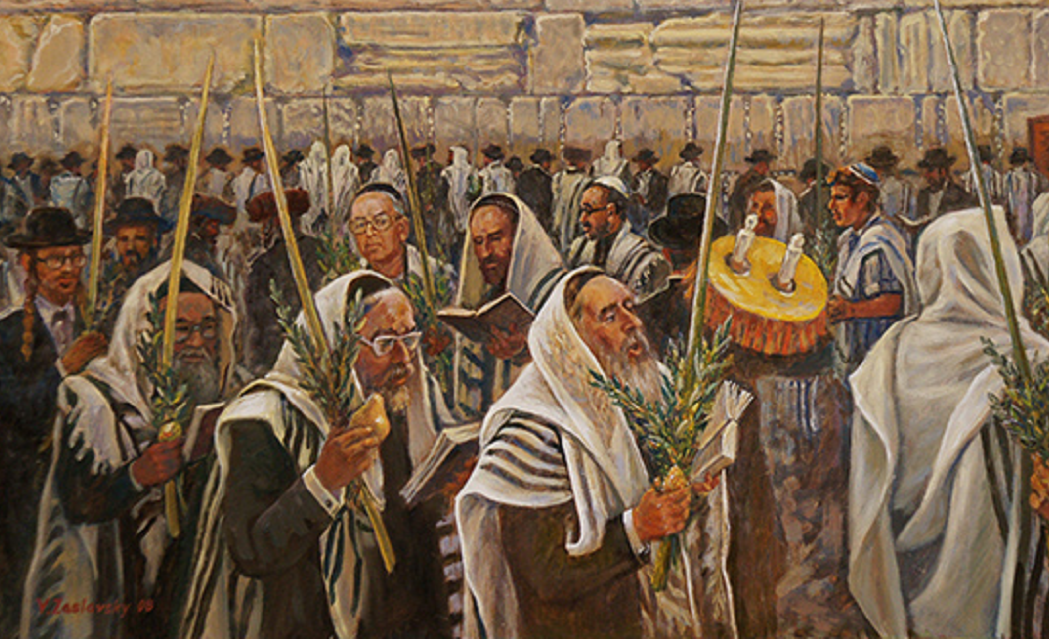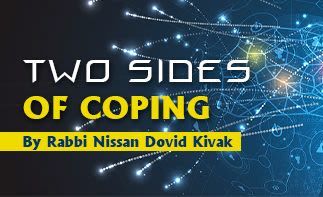
Rebbe Nachman on Friendship
There are people who suffer terrible pain but cannot express what is in their heart. They would like to speak about their suffering but they have no one to talk to…

“The Essential Rebbe Nachman”, Part 5
FRIENDSHIP
It’s not hard to push a person away. The real work is to draw him close and uplift him. (Netiv Tzaddik 31)
Smile
With happiness you can give another person life!
There are people who suffer terrible pain but cannot express what is in their heart. They would like to speak about their suffering but they have no one to whom they can explain what is really in their heart. This leaves them full of pain and anguish.
When you come to such a person with a smiling face, you can literally give that person life. To give a person life is not an empty gesture. It is something very great. (Sichot Haran #43)
Feeling Others’ Pain
You should be able to feel another person’s pain in your heart – all the more so when many people are suffering. It is possible to know another person’s pain and suffering yet still not feel them in your heart.
When many people are suffering, you should certainly feel their pain in your heart.
And if you do not feel it, you should knock your head against the wall: you should strike your head – your mind and intelligence – against the walls of your heart!
This is the meaning of the words: “Know this day and realize it in your heart …” (Deuteronomy 4:39) . You must bring the realization from your mind into your heart. Understand this well. (Sichot Haran #39)
How Are You?
When someone asks his friend how he is and the friend says, “Not good”, this can be an opening for trouble. Because God says: “You call this not good? I’ll show you what not good is!”
But if when his friend asks how he is, he answers brightly, “Good, thank God!” even though things really are not so good, God says: “This you call good? I’ll show you what good is!” (Siach Sarfey Kodesh 1-32)
Receiving From One Another
Talk over spiritual matters with your friends. Each Jew has his own unique good point. Thus when two friends have a discussion, each can benefit from the other’s good point. Sometimes your friend’s good point may shine on you during a conversation that is outwardly about mundane topics – because at times even mundane conversations may give rise to new ideas and inspire you spiritually. At times a person’s good point may be veiled – and the words of the conversation become a kind of clothing for it.
By discussing spiritual matters regularly with your friends you will all be able to benefit from each other’s good points. This will enable you to break the “foreskin of the heart” – the lusts and desires that break a person’s heart – so that you are filled with holy desire for God. (Likutey Moharan I, 34)
Working for a Civilized World
People should make it their business to talk to others about the purpose of life. For “He did not create (the world) to be desolate, He formed it to be inhabited” (Isaiah 45:18). We all have an obligation to try to make this world a civilized place – a world filled with people who are true humans, Children of Adam, as the Torah says: “And fill the earth” (Genesis 1:28) . The world is a civilized place only when filled with true Children of Adam, people who possess awareness and knowledge of God. A world without people who know God is a world of desolation and emptiness. Those who do not have this awareness cannot be called Children of Adam.
Just as it is a commandment to have children in order for the world to survive, so it is a commandment to instill awareness and knowledge of God in our children and anyone else whom we are in a position to influence. Teaching our children to know God is the essence of the commandment to have children. It is vital to ensure that future generations will be true Children of Adam and not wild animals who merely look human on the outside. Those who have no knowledge of God and do not feel His power cannot be called Children of Adam, because the ability to know God is the defining feature of the Children of Adam.
Everyone should make an effort to bring his friends to greater knowledge of God and fear of heaven, thereby making his friends his “students”. This way, when his days are complete and his time comes to leave the world, he will be clothed in the words he spoke to his friends, and it will be as if he himself is literally still in this world. (Likutey Moharan II, 7)
Direct and Returning Light
When a person discusses devotion with a friend, it creates “direct light” and “returning light”.
Sometimes the “returning light” comes before the “direct light”, as when the recipient has certain mental limits that prevent him from accepting his friend’s words. Even before the recipient receives the “direct light” from his friend, the friend already receives “returning light”.
Even if the intended recipient cannot accept his friend’s words, the friend can be inspired by what he himself is saying. When his words come forth from his mouth and strike the other, the light is reflected back to the speaker just as when something thrown against a wall bounces back to the thrower. In the same way, when you speak to a friend, you can be inspired by the words that bounce off him even though he himself is unable to accept them.
Had you told yourself exactly the same thing, it may be that you would not have been aroused in the least. But by addressing them to your friend, you yourself are inspired even if he is not, because your words are reflected back to you from your friend. (Likutey Moharan I, 184)
Paying Back our Debts
There was once a very rich man who possessed countless wealth. He announced that anyone who needed to borrow money should come to him and he would give him a loan. Needless to say, large numbers of people were only too eager to take up his offer, and they came and borrowed money. The rich man had a notebook in which he kept a record of all the loans he gave.
One day, glancing through his notebook, he noticed that he had given out enormous sums of money in loans yet not a single person had bothered to pay back their debts. Naturally, he was very upset.
Among the people who had taken a loan was a certain man who had lost his money in an unsuccessful business venture. He had nothing with which to repay his debt. It troubled him greatly that he was unable to pay, and he decided that the least he could do would be to go in person to the rich man and explain the whole problem and say that it was not his fault… The debtor came to the rich man and started explaining how he had received a loan from him but when the time came to repay the debt he was unable to do so because he had lost his money, and he had no idea what to do.
“What do I care about the money you owe me?” replied the rich man. “Of what significance is the tiny sum you owe me, whether you pay it or not, compared with the total sum of all the loans, which runs into tens of thousands? What I want you to do is to go to all the people who borrowed from me and ask them for the money. Remind them how much they owe me and ask them why they don’t settle with me. Even if they don’t pay everything, if each one would just pay back a small part of his debt, that alone would come to thousands of times more than the entire sum you yourself owe.”
It is clear from this story why, having received so much kindness from God, we all have an obligation to encourage others to turn to Him too. (Chayey Moharan #447).
To be continued.
***












Tell us what you think!
Thank you for your comment!
It will be published after approval by the Editor.